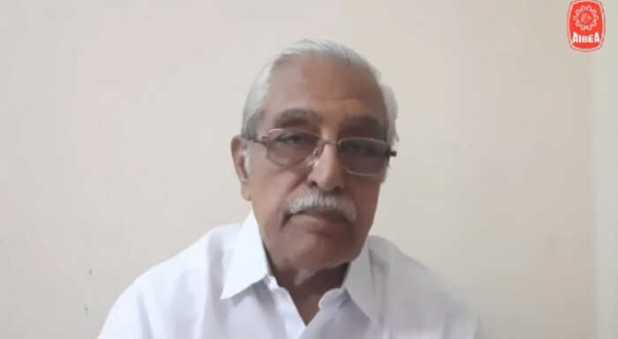
Hyderabad, March 28 : About four lakh bank employees have participated in the two-day nation-wide general strike called by the Joint Platform of Central Trade ons (CTUs) and various sectoral Independent Trade ons from Monday to protest against the anti-people economic policies and anti-worker labour policies of the Central Government. All India Bank Employees’ Association (AIBEA) has decided to support this call and join the strike to focus on demands in the banking sector. AIBEA General Secretary Ch Venkatachalam in a release said, the strike was observed by bank employees in Public Sector Banks (PSBs), Private Banks, foreign banks, Cooperative banks and Regional Rural Banks. He said, as per reports reaching us from various states, the strike has been a success. Employees have enthusiastically participated in the strike. They joined the rallies and demonstrations in large number in the cities, districts and towns. We could observe that employees are particularly unhappy with the decision of the Government to privatise the Banks. Lakhs of young employees and officers have joined the PSBs after a very tough recruitment process and many of them have left IT and other private sector jobs and joined the Government owned Banks only due to the job security available in these Banks, Mr Venkatachalam said. Hence the Government’s plan to privatise the Banks is a rude shock and highly demoralizing. Similarly, the demand for scrapping new pension scheme has also become a popular demand with the young employees. Bank employees who joined the Banks after April, 2010 are now governed by the undefined contributory new pension scheme. When the Central Government is unable to control inflation and price rise, they also deserve a defined pension which is linked to cost of living. This is an important demand of our strike. Another important issue in this strike is against the increasing outsourcing of regular bank jobs to contract employees. There are 4,73,000 Business Correspondents today who are contract employees and do not have regular pay scales and service conditions like the permanent employees even though they also do the same job, he said. MORE CS1013
